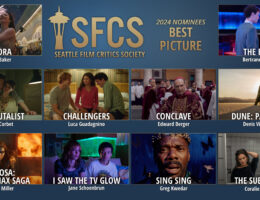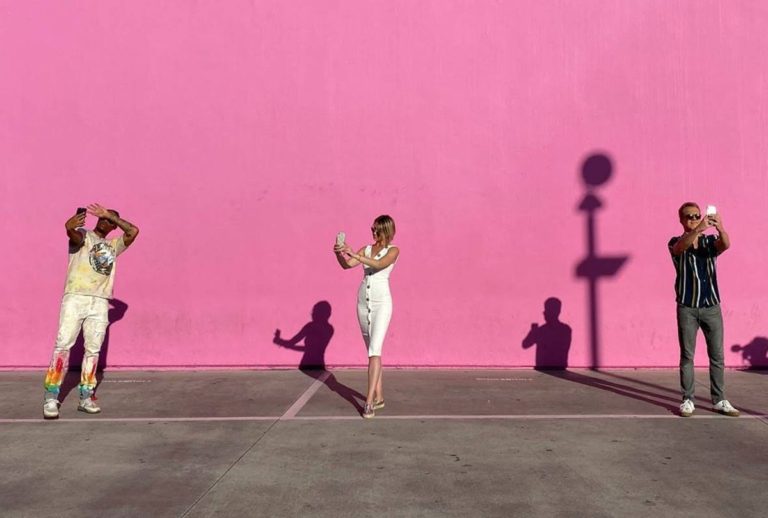Fake Famous (2021 | USA | 86 minutes | Nick Bilton)
New York Times and Vanity Fair tech reporter Nick Bilton has an interesting sociological experiment he sees through in his new documentary Fake Famous. Can three wannabe social media influencers fake it until they make it in the world of Instagram popularity? The answer (probably) is much less interesting than the journey this documentary takes them on and the question of what online fame means and how much that’s worth.
After a series of auditions, Bilton and his team select three candidates: Dominique, a pretty white girl who wants to be an actress; Chris, a black fashion designer who has a line of one-of-a-kind shirts called One-Off; and Wylie, a gay real estate assistant who wants bigger things than his demeaning day job offers. Bilton floods their Instagram accounts with fake bot followers he purchases from some shady places online, and sets up elaborate photo shoots designed to boost their online presence. The private plane Chris is photographed in? It’s actually a stage that you can rent for $50 an hour. The champagne they are photographed drinking is actually apple juice, and there’s a high probability that the airplane window you see influencers peering through is actually a toilet seat. Fake Famous notes that the woman behind the @newyorkcity Instagram account (1.6 million followers) ran most of it from Los Angeles. One influencer even faked a trip to Bali by going to Ikea instead.
For their parts, the men become the most conflicted about their roles in this artificial fame ecosystem. Chris finds the purchased “engagement” on his posts cheesy and the fake private jet to be in conflict with the brand he wants to project. Wylie takes his Instagram account private when a real-life acquaintance from his days before he moved to California notices the influx of bots on his account.
Dominique has the most success as an influencer, which boosts her acting career, and results in lots of paid-for vacations and free products in the mail, but the work rarely pays. Bilton does note that Dominique found some genuine traction from a video that went viral organically. She was trying out an in-home bidet that was sent to her. At least she wasn’t looking through a toilet seat.
One interesting aside: in the few days since Fake Famous premiered on HBO, a controversy started brewing on Twitter when one of the talking heads interviewed in this documentary to provide some context, Taylor Lorenz of the New York Times, tweeted the verifiably false claim that a powerful venture capitalist used a slur in a discussion on the Clubhouse app about Gamestop. Lorenz has done some great reporting on this culture (this is a personal favorite), but this is as embarrassing as any fancy trip to the Bali section of Ikea.
The bubble, though, on influencer culture may have burst when COVID-19 hit. Bilton noted that, in the first months of the global pandemic, branded posts didn’t really stop. Still, after almost a year of being locked in our homes to try to slow the spread of a deadly virus, there seems to be little use for vicarious enjoyment of superfluous travel, especially when the travellers are assholes.
There also remains a gulf between those who are Instagram-famous and those who are famous-famous. The day after I watched Fake Famous, I still had to Google the three participants in Nick Bilton’s experiment and don’t think I could name a single Instagram influencer without access to my phone.
The movie is a fascinating look into a culture that has inspired envy and wanderlust. It’s worth the 86 minute run time, but the future of influencing remains uncertain. At least until the next person tries posting about drinking from a $13,000 bottle of wine. Not even a genuine celebrity can get away with that right now.
_________________________________________________________________________
Fake Famous is currently streaming on HBOMax.




